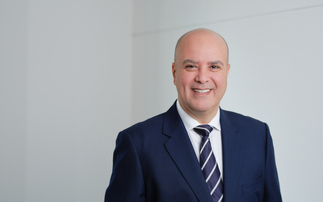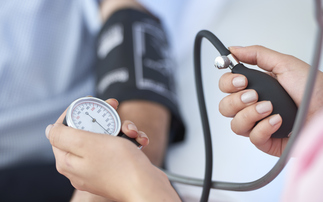The Big V - launched amid claims of scaremongering, hypocrisy and over-complication - has already created a stir. Johanna Gornitzki looks at industry reaction to Virgin's cancer-only cover
The beginning of 2006 saw the launch of Virgin Money's cancer-only cover. In an industry where product innovation is scarce, it was bound to be a massive event.
However, contrary to the positive response one would have expected from a sector hungering for new products, the comments it received were far from complimentary. Why did it provoke such a negative reaction?
Virgin's cancer cover, The Big V, was originally pitched as a low-cost alternative to traditional critical illness (CI) insurance cover. Provided by Scottish Widows, the cover has been marketed as being nearly 50% cheaper than the average CI product.
This was made possible by only covering for one critical illness and adopting a severity-based claims process under which only 10% of the amount of sum assured will be paid out in the event of diagnosis of an early stage cancer.
Another 15% of the sum assured would then be paid out if the condition develops into an intermediate stage of cancer or 25% if no payment was previously received. Virgin Money will then pay out 100% or any remaining balance if a policyholder is diagnosed with advanced cancer.
At first, Virgin was praised for its innovative approach. However, the company soon received plenty of stick for the way it promoted the plan.
While Virgin sternly argued that the cover was not a CI product and should therefore not be compared with that type of insurance, the firm itself went ahead and drew comparisons with CI.
Its press release reads: "The launch of the Virgin Money cancer cover will see customers save up to 45% compared to an average critical illness quote."
Mistake
Mark Locke, PR manager for Scottish Equitable Protect, believes this was a major mistake by Virgin. He says: "Any innovation in the protection market must be applauded. However, it's unfortunate that Virgin chose to compare its limited cover with the much more comprehensive critical illness policies.
"If the firm hadn't made that comparison, the product would not have been criticised so much at launch."
However, the criticism did not stop there. Apart from slamming Virgin for not comparing like with like, the information supplied on Virgin's website, which states the cover is "simple" and that nearly one in three people will get cancer, was also met with strong disapproval.
According to the Financial Services Authority's (FSA) financial promotion guidelines used in the sales of CI cover, there should be no use of "scaremongering" when marketing a CI product and neither should it be marketed as being a simple product because they are rarely simple.
Virgin's cancer cover is no exception to this rule. "Clearly this product should adhere to the financial promotion guidelines," says FSA spokesman Robin Gordon-Walker.
Despite this, the firm still describes the cancer cover as a simple product, something that many protection experts argue is completely wrong since the different definitions and tiers of cancers are extremely complicated.
However, Nick Kirwan, marketing director for protection at Scottish Widows, hits back, saying he believes it is simple and that we should not underestimate the public.
"I think people understand more than we give them credit for," he says.
Moreover, the website is also highlighting scary statistics which play on people's fears. Mike Naylor, principal researcher at consumers' association Which?, says: "Looking at the website, saying that one in three will get cancer - that is clearly scaremongering."
Breach
Putting these facts together suggests Virgin may be in breach of FSA regulation. Gordon-Walker, however, insists on pointing out that the regulator has not indicated that this is the case.
"While we are aware of the cancer cover we have not made a judgement on it. In general, if we did think a product failed to do so we may ask the company to change the advertisement or even withdraw the product altogether," he says.
While the bulk of the negative response has been concerning the marketing of the cover, some of the product's features have also been questioned.
The majority of commentators agree it is cheap. However, views are divided on whether or not it gives policyholders value for money.
In fact, some say the structure of the product - the one illness cover, the three-month moratorium, the reviewable premiums and the staged payouts - mean it is more expensive than other protection products in the market.
The payout method has, in particular, been attacked with some commentators arguing the criteria for the final payout are so harsh that claimants have to be terminally - or at least very seriously - ill with cancer to be able to get a full payout.
Matt Rann, underwriter at Scottish Equitable Protect, is one of them. He believes the majority of policyholders claiming at this stage will not survive for more than 12 months. "I believe that only around 30% will live for more than a year after claiming at this stage," Rann says.
If the stage three payout (also called payout for advanced cancer) would mean the individual would have to have a potentially terminal condition, a CI product combined with life cover could prove better value.
According to Bright Grey, a 35-year old man would have to pay £19.81 for £100,000 of Virgin's cancer cover. However, if the same man bought £25,000 life or CI combined with £75,000 life cover from Bright Grey he would only have to pay £15.97.
This would not only work out cheaper but it would also offer more comprehensive cover, says Roger Edwards, products director at Bright Grey.
He explains: "In this scenario, if the client got diagnosed with cancer and met the standard industry definition he would get £25,000 from both Bright Grey and Virgin - and from us he would also get £25,000 if he got any of the other 30 odd illnesses. If he got a very severe cancer he could fulfil the terminal illness definition on life cover as well and could get the rest of the £100,000."
Kirwan thinks this suggestion is "absolutely ludicrous".
He says: "To qualify for a 100% payout under the Virgin cancer plan, the cancer would have to have spread beyond the site of origin or be in a specific organ with a relatively poor prognosis.
"While this may sound bad, in the majority of cases this does not equal a terminal illness where there is no hope of survival beyond twelve months."
Referring to statistics from the American Cancer Society, he says that in 11 out of 18 types of cancers the five-year relative survival rate is over 50% for claimants with advanced cancer.
"I utterly reject the suggestion that the last definition is in any way similar to terminal illness definition. Given the five-year survival rates, I think we could all agree that these cases are far from 'terminal' and a doctor is very unlikely to give the patient such a gloomy prognosis that would meet the standard terminal illness definition - an illness that will result in death within a year," Kirwan adds.
No matter whether the final payout could, or even should, be compared with a payout on a terminal illness premium it is clear that this is not a decision a consumer would be able to make on their own.
Essential
This is where advice could prove essential. However, at the moment Virgin's cancer cover is only available via the company's direct sales force and although the firm is considering introducing it to the IFA community it may never be available to advisers.
Virgin believes there is no need for advice as the product is simple enough to grasp without customers having to consult a financial adviser.
"The product is called Virgin cancer cover. You could say it does exactly what it says on the tin. Many people, including journalists, have commented on how simple, effective and sensitively the Virgin Money website handles this subject. So yes, it is simple enough to be sold without advice," says Scott Mowbray, head of public relations at Virgin Money.
Naylor, though, argues the cover is in some ways more complex than traditional CI cover.
"It is far from a simple product and I would even go as far as to say that it is more difficult to understand than some critical illness policies due to its staged payout approach.
"This is a high-risk product and it should be sold with advice," he says.
Being sold via a direct sales force, there has been speculation that cancer cover customers have no redress should they want to complain.
Mowbray refutes this notion. "Virgin cancer cover is regulated by the FSA and should a customer want to complain, they can contact Virgin Money in the first instance. Then, if that does not reach a satisfactory conclusion they can complain to the Financial Ombudsman," he says.
However, Kevin Carr, head of protection strategy at LifeSearch, says the issue here is not whether policyholders can complain to the FOS, but that the product is bought without advice. If things go wrong, there is a compensation procedure in place for mis-selling. However, there isn't one for mis-buying.
There is hardly any point, therefore, in customers complaining about buying the wrong product if it hasn't been sold with advice, argues Carr.
He explains: "Seeking redress from the Ombudsman for a product bought without advice is like stealing from yourself and then reporting it to the police.
"Of course you can call them but they won't be able to help you."
With the cover being seen as complex and without a compensation procedure for mis-buying, it is likely this could lead to a mis-buying scandal. While this in theory should not affect the IFA community, in practice it would.
"A potential mis-buying scandal would affect the industry as a whole as the bad press the cover would receive would tarnish the sector as a whole," says Peter Chadborn, principal of IFA firm CBK.
The future success of the product therefore concerns the whole industry.
Mowbray thinks this type of hybrid product will gain popularity.
"People are not buying traditional CI. It is well known that sales are dwindling. We are looking to innovate, create the debate and make consumers think about their protection needs," says Mowbray.
Hybrids
"There is room for everyone in the market and we hope to see more and more innovation in the protection market in the coming months and years," he adds.
"We are more likely to see hybrids covering cancer, heart attack and stroke but not just one of the others. All three would form 85% of the risk and could be our next step in this market," he adds.
While for now Virgin is the only firm to launch such a radical product, there seems to be a widespread suggestion other companies are waiting to see whether it will become a success before following in Virgin's footstep. So, will it be successful?
Yes, it will certainly be a success for Virgin. The big question, however, is if it will be equally successful for the customers buying it.











